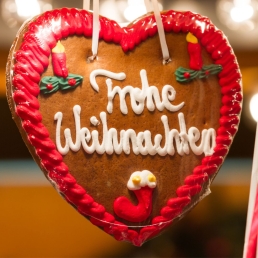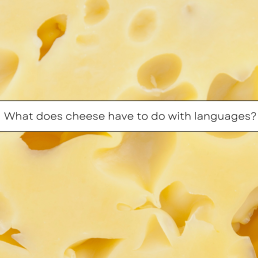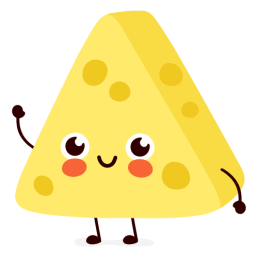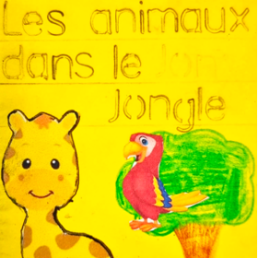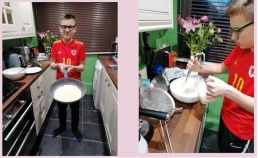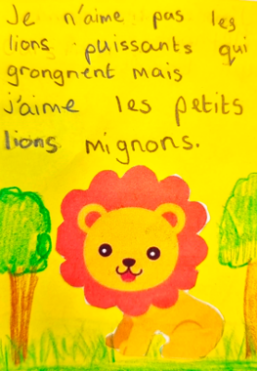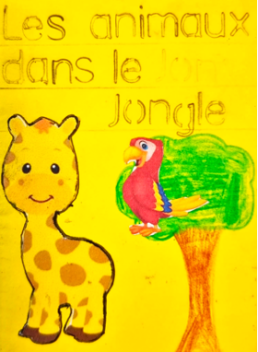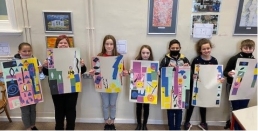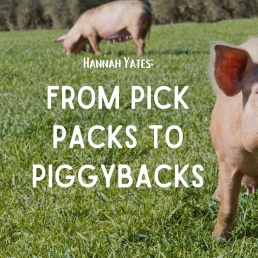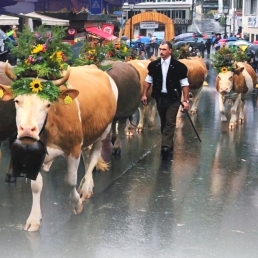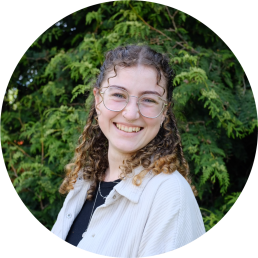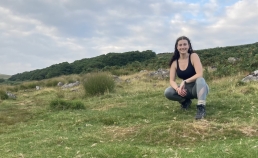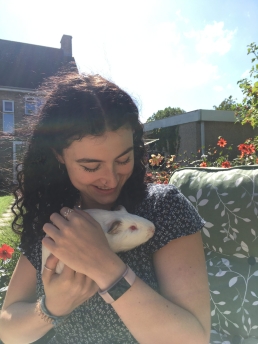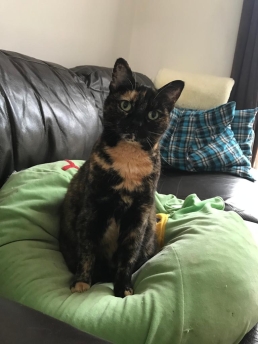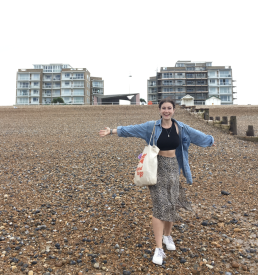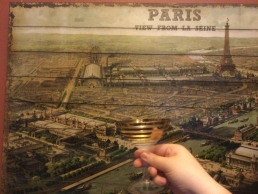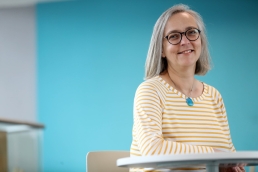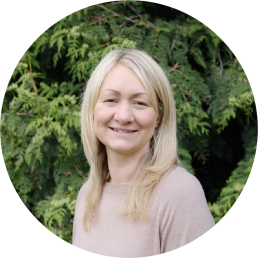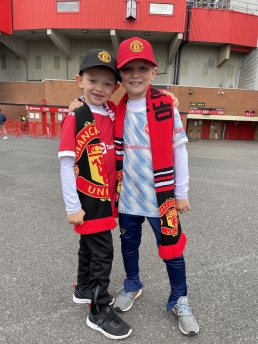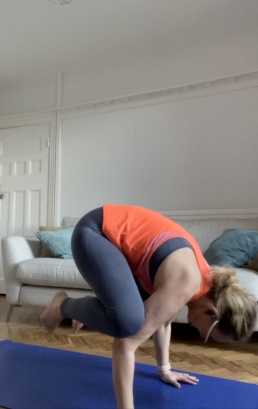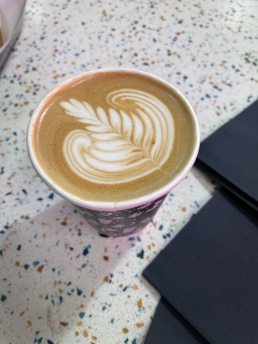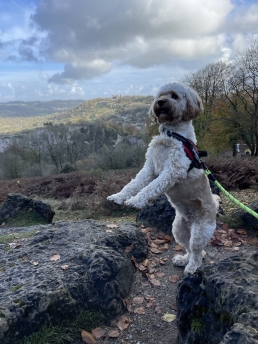New Christmas resource for teachers
With Christmas just around the corner, we’ve taken the opportunity to put together a fun resource which can be used with upper primary and lower secondary learners to find out all about Christmas!
The resource explores a whole range of different languages and concepts, everything from how to say Merry Christmas in Hawaiian, to exploring Welsh Christmas traditions like the Mari Lwyd, to getting creative in the kitchen making a tasty Bûche de Noël.
The resources traverse a whole range of different cultures and languages, but also offer opportunities to engage in more detailed learning in Welsh, Spanish, French or German. For non-specialist primary teachers there are detailed notes and audio files included, and for secondary teachers, the resources offer opportunity to delve into a variety of different language concepts and structures.
This resource is just one part of a series that is being developed by us at MFL Mentoring, aiming to support our wonderful teacher community as we embed multilingualism across our language classrooms.
Keep an eye out for future resources which will include a whole range of different things, including Lego and Alebrijes – is your interest piqued?!
Links:
What does cheese have to do with languages?

Have you ever wondered how cheese is made?
As a big cheese fan, I decided to investigate by visiting the Gruyère cheese dairy in Switzerland.
Gruyère (pronounced groo-yair) is made in the town of Gruyères and like most Swiss towns and villages, it’s picture perfect with lush, green, rolling hills, the sound of cow bells in the nearby fields and mountains.
Grue is actually the French word for a crane and the bird is the emblem of the town, featuring on flags or as ornaments in people’s gardens.
As I write this, Gruyère has just been named the best cheese in the world for the second year in a row at the World Cheese Awards, which was hosted in Newport, Wales, beating nearly 4000 other cheeses. Who else wishes they were on the judging panel for this?!
Gruyère is found in all the supermarkets in the UK. So, if by the end of reading this your mouth is watering, then you don’t have to come all the way to Switzerland to taste it!
This cheese dairy, (‘la fromagerie’ in French and ‘die Käserei’ in German), has been making cheese since 1115 with milk produced from cows within a 12-mile radius.
They offer a self-guided tour with an audio headset in multiple languages, have a restaurant where you can sample the cheese as part of many delicious regional and traditional dishes, along with a well-stocked gift shop, and twice a day you can watch the filling of the cheese moulds which is an important part of production.
Now to the numbers! To make a 35kg cheese wheel requires 400l of milk. A cow (‘une vache’ in French, ‘eine Kuh’ in German) has four stomachs and produces 25l of milk a day.
The Gruyère dairy produces 48 cheese wheels a day and exports them globally.
The cheese (‘le fromage’ in French, ‘der Käse‘ in German), is a hard cheese made from cow’s milk, just like British cheddar, but Gruyère has a more distinctive smell and taste (nutty and creamy) thanks to the grassy pastures the cows graze in.
Again, like British cheddar, there are numerous types of Gruyère which have been aged for different amounts of time. The longer they have been sat on the shelves, the more intense the flavour.
In the gift shop you can try and buy the different aged cheeses which range from five months/mild (‘doux’ in French, ‘mild’ in German), all the way up to 24 months/extra mature (‘vieux’ in French, ‘rezent’ in German).
I enjoyed my visit so much that I went back the following weekend when my friend came over to visit!
This time I listened to the tour in German, and I could buy some more cheese as I’d already eaten all the cheese from my visit the weekend before!
After visiting the alpine festival in Lenk im Simmental (see my previous blog) and the Gruyère cheese dairy, I feel like I now fully understand why the Swiss are so passionate about their cows as they produce the best cheese in the world!
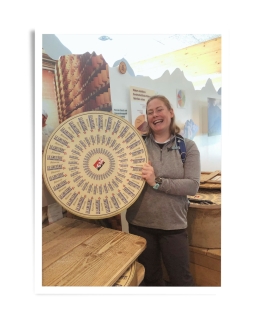
Important words:
- distinctive – individual
- sample – taste
- well-stocked – filled with lots of something
- export – send to another country to sell
- pastures – grassland
- intense – greater/stronger
School Profile: Ysgol y Moelwyn

About our school
Ysgol y Moelwyn is a Welsh-medium school located in the beautiful historic mining town of Blaenau Ffestiniog, in the heart of Gwynedd. It is a relatively small school with just under 350 learners in years 7 to 11.
As the only international language teacher in the school, I have been able to teach every single learner, which makes us a very close-knit community.
I have been teaching at the school for five years, and with the school closures due to Covid-19 and the poor attitudes towards learning an international language when I first started, it has been a challenging time. However, we have persevered, and we now feel a bit of a buzz from the languages department!
For the last few years, we have had Pupil Language Ambassadors leading the way in raising the profile and promoting the values of language learning at Moelwyn, and they have been involved in several different activities.
Their training began with a live virtual tour around Peru with Routes into Languages Cymru where they had the opportunity to learn about another culture and language and broaden their horizons ready for leading the way themselves. They completed several challenges throughout the year and started up a languages club in school. This concluded with them coming 2nd in the competition for Team of the Year Award in 2022!
Some talented year 8 and 9 learners also had the opportunity to take part in Seren Sylfaen training sessions for languages this year as some of Moelwyn’s most talented linguists!
They participated in an online workshop and activities and entered the competition to design a poster with a saying in an international language and one of our year 8 learners came 2nd and won a book voucher!
They took their time out to come back to the classroom after school hours to take part; now, that is dedication!
Here they are with their certificates:
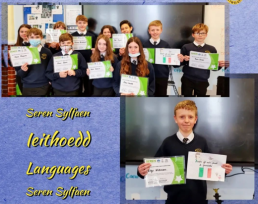
Activities and languages
Activities and languages
As a rural community in North Wales, it can sometimes be challenging to portray the importance of learning languages to our young people, which is why it is vital to create authentic experiences for them.
Because of the pandemic, it has been almost impossible to arrange trips abroad (our Christmas trip to Lille was cancelled in 2020!) so we have tried to make the most of what is available to us here.
Just around the corner from the school, we have a cinema called CellB, which is a former police station (hence the name!) so it’s a very cool place to go and watch a movie in the old cells!
With the help of the IntoFilm Festival, we were able to take our year 7 learners to see the French-language animated film, ‘Zarafa’, for free, so not only were we supporting the local community, but the learners had the opportunity to bring the language they were learning to life outside of the context of the classroom.
Furthermore, our year 8 learners went on a trip to London this year where they visited the Insititut Français in London, had a walking tour of Soho learning about the French history of the Huguenots, and enjoyed an evening meal at a French restaurant.
It was a brilliant few days for learners and staff alike without the worry of travelling abroad!
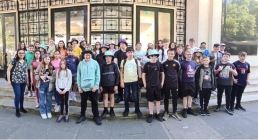
Curriculum for Wales planning has definitely provided greater freedom in the department with a focus on teaching for purpose and enjoyment.
It has brought about opportunities to collaborate with other departments and areas of learning and to work with more literature, songs, and art.
Despite the challenges of school closures during the pandemic, we cannot deny that it provided a chance to experiment with new ideas and technology and to think outside of the box.
The department has taken advantage of the opportunity to work across the Areas of Learning and Experience.
Learners worked on gothic literature with the English department and described a gothic image in French.
In Art lessons learners created their own Matisse-inspired ‘cut outs’ using a description in French.
Science and geography lessons saw learners creating a children’s book on jungle animals and during lockdown learners had the opportunity to have a go at making delicious crêpes in cookery lessons!
Here are some of their successes:
European Day of Languages has been a key day for the department, and we like to celebrate it in different ways every year on the 26th of September.
We held a bake-off competition where we raised nearly £200 for Macmillan Cancer Support, and last year we had a t-shirt designing competition.
These events have brought the whole school together and have drawn interest to learning languages amongst staff and learners, which has been such a positive experience!
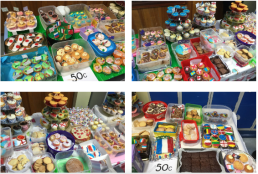
Improving engagement within the classroom has always been a big focus for the department at Moelwyn and we are always thinking of ways to make lessons more fun.
My learners love a game of Balloon Pop (from WordWall.net), Blooket or ‘un dé, un stylo’ (one pen, one dice), which all create a buzz in the classroom, and an excitement for the language.
In the recent school Eisteddfod, learners took part in a competition to create calligrams in French on the themes of animals, films or family and the results were fantastic!
MFL Mentoring and our school
Finally, I would like to talk about the success we have had with MFL Mentoring. We have been fortunate enough to have had several mentors visit Moelwyn (both phyically and virtually!) to provide cultural and linguistic experiences for our learners to increase engagement and uptake at GCSE.
The response has been incredibly positive and the sessions have provided learners with the chance to enjoy languages outside of the traditional classroom setting.
When I started at Moelwyn 5 years ago, there were 3 learners in year 11 and zero learners in year 10 studying an international language; by now we have at least 10 opting to study French each year at GCSE, which I feel is a massive achievement.
We still have some work to do, but the world is our oyster!
Why is it called a piggyback?
Buongiorno! I’m Hannah, I’m 25, and I’m currently working as an English language assistant in La Spezia, Italy.
Over the past six years I’ve lived in as many countries, and throughout my travels I have always been fascinated by how language finds its way into everyday life.
This is the first of what will be a series of blogs exploring how languages relate to a series of seemingly unrelated parts of life, inspired by my experiences in the UK and abroad.
Today, we’ll be diving into a classic mode of transportation – the piggyback ride! For those unfamiliar with the concept, one person carries another by loading them onto their back and shoulders.
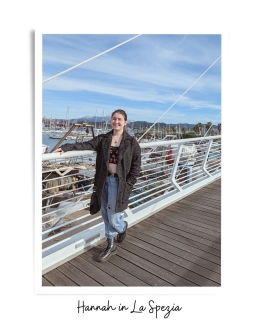
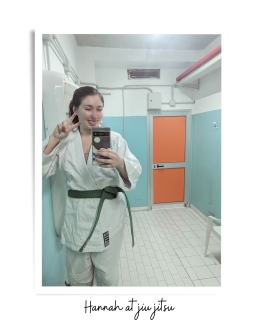
Now, I’d never really thought too much about why a piggyback was so-called, until a recent session of jiu jitsu training here in La Spezia.
As part of a training exercise, me and my training partner, Chiara, gave each other piggyback rides around the dojo. The exercise was described by our sensei as carrying the other ‘a cavalluccio’ which translates as carrying someone ‘as a little horse’.
Pretty cool, right?
And, as horses are known for carrying humans around, it makes perfect sense…
But how about ‘piggyback’? It’s not like pigs are famous for carrying people on their backs.
Well, as I explained the English translation to my sensei, he immediately reasoned that butchers used this method to carry dead pigs. Although I was slightly saddened at the thought of lugging pig carcasses around, it made a lot of sense.
I decided to look up the origins nonetheless, and it didn’t take long to find a brief history of the word ‘piggyback’, which actually has nothing to do with pigs at all!
Let’s go back to the 16th century. At this time, goods were largely transported in packs on people’s (or animals’) backs.
These became known as ‘pick packs’, the logic being that you had to pick it up to put it on your back.
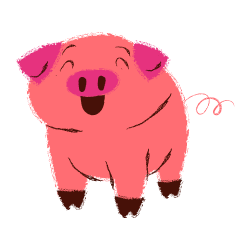
However, as time moved forward, so did the language. ‘Pick pack’ became ‘pick-a-pack’, which became ‘pick-a-back’.
However, the ‘pick-a-back’ was often misheard as ‘pick-i-back’, and our natural tendency to make sense of what we hear resulted in the word ‘piggyback’.
Even if pigs weren’t known for carrying people or goods, ‘piggy’ was the only animal that sounded anything like ‘picky.’
This was used to describe these backpacks by the 19th century, but by the 1930s, the word was also used to describe riding on someone’s back and shoulders.
So, nothing to do with slinging pigs around at all!
What about other languages? Well, the French, carrying someone ‘à califourchon’, means ‘straddling’ or ‘astride’, in the context of horses.
The Spanish is almost identical to the Italian, ‘a caballito’ meaning ‘as a little horse’. It seems like horses are a common theme amongst Romance languages!
How about ‘piggyback’ in other international languages? Comment and let me know how you say ‘piggyback’ in a language you know, and what it literally translates too!
Baci, alla prossima!
Important words:
- A cavalluccio – ‘Like a little horse’ (Italian version of ‘piggyback’)
- À califourchon – ‘Straddling’ or ‘astride’ when talking about horses (French version of ‘piggyback’)
- A caballito – ‘As a little horse’ (Spanish version of ‘piggyback’)
- Baci, alla prossima! – ‘Kisses, until next time!’ (Italian)
Meet... Beth!
What's your role?
I’m also an Education and Project Coordintor at MFL Mentoring.
I officially joined the team in September 2022, but before that I mentored with the project for 2 years as a student, and then completed an internship with MFL Mentoring after graduating!
Tell us a bit about yourself!
I was born and raised in Bristol, close to the border between England and Wales.
My mam is from Cardiff, and although I didn’t get the chance to learn Welsh when I was younger, we would spend a lot of our weekends and school holidays in Wales, so I’ve always had a strong relationship with Wales!
Despite my largely monolingual family, I studied French and German at GCSE. When I was in secondary school, it was compulsory for everyone to take a language at GCSE. I remember hearing lots of my classmates complaining that the language classes were ‘boring’, that they couldn’t study any of the languages that they actually wanted to learn, or that the content wasn’t relevant to them. I really connected with this last point, as I wanted to explore my specific interests, not just follow the standardised topics that the curriculum prescribed. I was really lucky that my German teacher was able to plan “off-piste” lessons – my favourite was when he asked us to find a German recipe, and then we actually cooked and ate the food in class-time. Apfelstrudel is still one of my favourite dishes to this day!
I went on to study French at A-Level and French and Spanish at University. I’m now refreshing my German while finally realising my dream of learning Welsh!
Aside from my obvious love of languages (you will usually catch me learning more than one at once!), I also love yoga 🧘🏻♀️, getting crafty 🧶, books 📚, plants, both tea 🫖 and coffee ☕️, and both cats 🐱 and dogs 🐶 (and clearly do not like choosing favourites!)
What do you enjoy most about the project?
Having been both a student mentor and a team member, I love seeing the immensely positive impact the project has, not only on learner’s GCSE choices, but on their confidence, their motivation, and their passion for languages, among so many other things. The project (and the wonderful mentors that make it what it is) help to open learners’ eyes and broaden their horizons to the different ways languages form part of their identity and everyday life, and the ways in which they can learn (and hugely benefit from!) languages, which they’d never thought of before. It truly is magical! I believe that everyone deserves to experience language-learning in this transformational, exciting and inspiring way, which is exactly what MFL Mentoring (and the Curriculum for Wales!) aims to do – to empower learners to explore ALL languages and cultures though a variety of different framings which are tailored to learners own interests. It not only fosters essential, transferable skills in learners, but also brings joy and personality back to language-learning. It puts the emphasis back on communication and human connection over fluency, and everyday within the project, we are witnessing the immense positive impact this brings!
Meet... Siân!
What's your role?
I’m MFL Mentoring’s Marketing and Communications Officer, which means I take care of our social media channels and marketing materials alongside Becky, and get to shout about all of the wonderful things we do and people we work with! I joined the project in September 2022 from another role within the university, and before that I worked as a journalist for WalesOnline.
Tell us a bit about yourself!
I was born and raised in Abertillery, in the Valleys, and went to an English medium primary and secondary school. I always felt quite confused about my identity growing up; my dad is a first language Welsh speaker from west Wales, but I grew up in quite an Anglophone area, and as a result I grew up with what I can best describe as ‘pidgin’ Welsh! I took Welsh A Level and French GCSE, but I’d always loved German and was determined to learn it somehow, so I took it as a beginner alongside my MA Modern History at St Andrews.
I spent a lot of time in Germany during my time at uni and eventually worked in Vienna, Austria for a year as an English language assistant, and I honestly had the best time of my life! Alongside my love of languages and other cultures, I spend my free time lifting weights, playing video games, trying my best with photography, and petting any and every cat I come across!
What do you enjoy most about the project?
My absolute favourite thing about the project is the ethos it promotes, which is that languages are for everyone, they are a part of every day life whether you’re ‘fluent’ in a language or not, and questioning the whole idea of ‘fluency’ as a goal in the first place! It’s so, so rewarding to hear from learners, teachers and our mentors that our project has made a difference in shifting attitudes towards languages, and if we can do that for just one person then it feels like it’s been worth it to me! Plus, our mentors are an absolute inspiration, and it’s such a privilege to be a small part of the support system behind them, allowing them to flourish and help broaden the horizons of learners across Wales!
Meet...Claire!
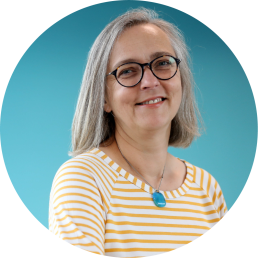
What's your role with the project?
I am the Academic Lead for the MFL Mentoring programme, which means that I support project partnerships between the universities who take part and the Welsh Government which funds the project.
I created the project in 2015 in response to the decline in modern foreign languages/international languages in secondary schools in Wales.
We began with just 18 schools and now work with over 100!
Tell us a bit about yourself!
I am a Professor of French Studies and love all things French. My favourite city in the world is Paris.
This love of France developed on my year abroad as part of my degree studying English and French at Leeds University! I worked in a secondary school as a language assistant and made friends for life there – indeed my best French friend from this time was the witness at my wedding!
Today, I research the teaching of languages and language policy in Wales.
I am a committed language activist, having had my world transformed by living abroad and coming to understand, appreciate and love French culture. I wish this openness to the world for other young people.
What's your favourite thing about the project?
It is a fabulous project, making a difference to thousands of young language learners across Wales – what’s not to like!
Our mentors are inspirational people, and the mentoring team are role models for their commitment to language and Wales in and for the world!
Meet... Lucy!
What's your role?
I’ve been the Project Director of MFL Mentoring since 2017 and have loved every minute of it. I work closely with the whole team and love getting to develop new and innovative ways to support International Languages throughout Wales.
Tell us a little bit about yourself!
I have lived in South Wales for all my life and have a passion for the nearby coastline that I try to visit most days with my little dog Ellie.
I went to an English-medium primary and secondary school and loved school growing up – I’ve always been an eager learner! I studied my BA in English Literature and Italian at Cardiff University and also studied for my Masters in European Studies here.
What do you enjoy most about the project?
They’ve struggled to get rid of me as after a short stint in the charity sector I came back to lead the project from 2017, and I’ve never looked back!
I am a heavy coffee drinker (a black americano please), an enthusiastic and besotted dog owner (please don’t roll in the fox poo, Ellie) and a very overbearing auntie to 3 teenagers (‘I don’t know’ doesn’t constitute a meal choice, try again!).
I am an activist for multilingualism and believe that every child deserves a chance to see where being a language learner can take them 🙂
Where do I begin? If I had to pick one thing, I’d cheat by saying all the people I work with!
Everyone from my team who commit themselves tirelessly to give everyone a fantastic experience, to the university students who change hearts and minds with their inspirational sessions, to the school teachers who open their doors to the possibility of mentoring.
People are at the heart of this project and that brings me joy (and lots of emails!!) every day!
Meet... Becky!
What's your role?
I’m an Education and Translation Manager for MFL Mentoring and I’ve been working with Lucy and the team for over 3 years now.
I’m responsible for managing the mentoring placements that take place across the EAS region, as well as developing multilingual and multicultural teacher resources for both primary and secondary schools in Cymraeg and English.
I also oversee the project’s social media, communications and translation activities, which means that I work really closely with my lovely colleagues Laura and Lowri!
I really love how varied my job is!
Tell us a little bit about yourself!
I’m originally from the South Wales Valleys and went to a Welsh medium primary and secondary school, even though neither of my parents spoke Welsh.
I loved learning languages at school and took A Levels in both French and Spanish.
I applied to study French and Spanish at Cardiff University but ended up swapping French to start Italian from scratch because I’d always wanted to learn it as I fell in love with the language watching a Welsh programme about Italian football with my Dad as a child!
I then went on to complete a postgraduate diploma in Interpreting and Translating at the University of Bath.
I completed my PGCE in languages at UWIC (now known as Cardiff Met) and once qualified, I began teaching Spanish in a Welsh medium secondary school where I stayed for over 12 years before leaving to join the project in 2020.
I’m a very proud mam to two boys and when I’m not pitch-side supporting them at football, I love yoga 🧘♀️,cooking 🍝 and walking my lovely dog Pops 🐕!
What do you enjoy most about the project?
My favourite thing about the project is seeing how our wonderful mentors inspire our young learners to think differently about languages.
The mentors have the opportunity to discuss such diverse topics with the learners and they’re generally topics that teachers don’t have time to explore in their lessons.
You really can’t underestimate how powerful an impact near-peer mentors can have on young people, they are truly inspiring and raise learners’ aspirations for the future.

